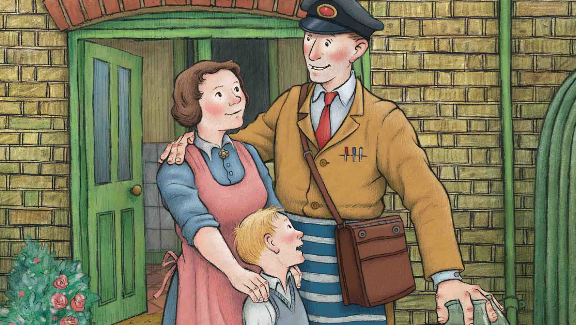
The title characters from Ethel and Ernest, with their son (and the author) Raymond.
Ethel & Ernest is an animation, based on Raymond Briggs’s semi-autobiographical book based on the lives of his parents.
In a filmed introduction (featuring Snowman plates and a Fungus the Bogeyman mug) Briggs talks about how he wanted to write a book about his parents, even though nothing major happened to them during their lives.
The film itself opens in 1928 with Ethel and Ernest’s first meeting, as Ernest passes by the house where Ethel works as a housemaid. It follows them through until 1971, the year both of them passed away.
What is of interest is not what happened to Ethel and Ernest, but what happened around them. The film begins in a world that would not be unfamiliar to the Victorians – Ethel is a servant – and ends in a world that is recognisable to us – the moon landings have happened, they have a car, TV, a phone.
Ethel & Ernest is a lovely, gentle film, moving and funny by turns; Ethel worries if they’ll be able to afford the £825 they pay for their house in Wimbledon over the twenty years of their mortgage, you see the rise of Hitler, the post-war Labour landslide and the creation of the NHS.
Brenda Blethyn and Jim Broadbent play the title characters, and though it’s only a small cast, all the other voices are well known names. It’s the sort of film you’ll flick on during a quiet bank holiday and end up really enjoying; it’s a social history of the mid twentieth century in Britain. There’s a Paul McCartney song over the end credits, apparently because he was a fan of Raymond Briggs, and when they met they got on well; they must be similar ages and of similar backgrounds.
Ethel & Ernest won’t change the world but it will make you laugh, and it might make you cry too.
